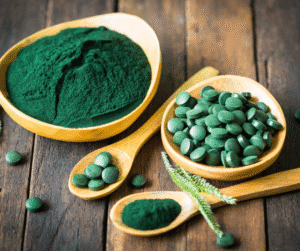TMC Body Clock

The Traditional Chinese Medicine (TCM) body clock is a system that links different times of the day to the optimal functioning of specific organs.
This concept is deeply rooted in TCM’s belief in the cyclic flow of Ki (vital energy) through the body’s meridians, with energy peaking in a particular organ system every two hours.
Below is a more detailed exploration of this principle:
Lung Meridian (3:00 AM – 5:00 AM)
During these early hours, the lungs are at their most active. This is considered the ideal time for oxygen intake and detoxification. Practices such as deep breathing, meditation, or gentle stretches can promote energy flow. For individuals experiencing grief or sadness, this is often when emotional burdens may surface, as the lungs are closely tied to these emotions in TCM.
Large Intestine Meridian (5:00 AM – 7:00 AM)
This is the time when the large intestine is at its peak. The body naturally eliminates toxins during these hours, making it beneficial to establish a regular morning routine for bowel movements. Drinking warm water upon waking can support this process. Emotionally, the large intestine is linked to the ability to let go—whether of physical waste or emotional burdens.
Stomach Meridian (7:00 AM – 9:00 AM)
The stomach is strongest during this period, and it is the best time for a nourishing breakfast. Breakfast is the most important meal of the day, as it provides energy for the body’s activities.
Spleen Meridian (9:00 AM – 11:00 AM)
The spleen is responsible for transforming food into Ki and distributing it throughout the body. This is an optimal time for mental focus and productivity. Emotionally, the spleen is tied to worry and overthinking, so activities that promote grounding and mindfulness are encouraged.
Heart Meridian (11:00 AM – 1:00 PM)
The heart governs blood circulation and emotional health. These hours are considered excellent for fostering positive social interactions and lighthearted activities.
Small Intestine Meridian (1:00 PM – 3:00 PM)
The small intestine processes and assimilates nutrients during this time, making it essential to consume wholesome foods. This is also a period for clarity and discernment, as the small intestine is believed to influence decision-making and separating what is useful from what is not.
Bladder Meridian (3:00 PM – 5:00 PM)
This is the body’s time for hydration and detoxification through urination. Drinking plenty of water and engaging in light physical activity can support the bladder’s function. Emotionally, the bladder is linked to fear, so finding time to relax can be beneficial.
Kidney Meridian (5:00 PM – 7:00 PM)
The kidneys, which are considered the root of vitality in TCM, are most active during these hours. This is an ideal time for restorative activities. Practices like meditation or yoga can strengthen kidney energy, which is also tied to willpower and courage.
Pericardium Meridian (7:00 PM – 9:00 PM)
The pericardium, or the heart’s protector, is most active during this time. Emotional well-being is a focus here, making it a good time for calming activities such as reading, journaling, or connecting with loved ones. Supporting the pericardium helps to protect against emotional stress.
Triple Burner Meridian (9:00 PM – 11:00 PM)
The triple burner is not a physical organ but represents the body’s energy distribution system. This period prepares the body for rest, allowing energy to flow harmoniously. Avoid heavy meals or screens to ensure restful sleep.
Gallbladder Meridian (11:00 PM – 1:00 AM)
During this time, the gallbladder supports detoxification and decision-making processes. Rest is crucial for optimal function, as insufficient sleep can disrupt the gallbladder’s role in maintaining balance and emotional resilience.
Liver Meridian (1:00 AM – 3:00 AM)
The liver regenerates and detoxifies the blood during deep sleep. This time is critical for the body’s recovery and repair processes. Emotionally, the liver is associated with anger and frustration, so unresolved conflicts may manifest during these hours if balance is not achieved.
The TCM body clock provides a framework for living in harmony with the body’s natural rhythms. By aligning daily activities—eating, working, resting—with the periods of peak organ function, it is believed that one can maintain physical health, emotional balance, and energetic vitality.
Would you like advice on incorporating these principles into your routine? Or perhaps guidance on supporting a specific organ?







